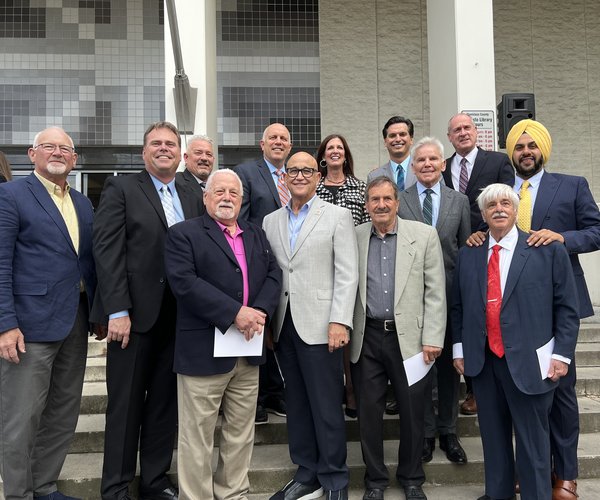When the next Turlock City Council elections roll around in 2022, candidates will have to abide by the new mandatory contribution limits set by the State of California after the City Council decided not to create its own contribution limit ordinance.
Assembly Bill 571, which establishes contribution limits for candidates for city office, is set to take effect on Jan. 1, 2021, unless City governments establish their own campaign contribution limit ordinances by the end of the year.
The Turlock City Council considered creating its own enforceable candidate contribution limits at their Nov. 10 meeting, but ultimately decided to default to the state law so the City would not be responsible for enforcement.
Under AB 571, candidates for City Council will be subject to a $4,700 contribution limit from a single source per election. This amount will be periodically adjusted by the Fair Political Practices Commission to account for inflation. Violation of the contribution limits will be subject to the penalty provisions of the Political Reform Act, and punishable as misdemeanors.
Vice Mayor Andrew Nosrati and City Council member Nicole Larson both advocated for making Turlock’s voluntary campaign contribution ordinance into a mandatory one instead of defaulting to the state’s limits.
Turlock’s voluntary campaign finance ordinance, adopted in 2016, sets a contribution limit of $1,000 per donor per election cycle for City Council candidates and $2,000 per donor for mayoral candidates.
“I look at Turlock’s economy and I compare it to our state’s and the nation. We’re at $4,700 per individual means a household can buy an election. I don’t think that’s good for our democracy; I don’t think that’s good for local government being representative of what the majority of people in our community are experiencing,” said Nosrati.
“We don’t have to recreate the wheel. If there was discussion and a program that came out in 2016, why can’t we have that be kind of the framework and make a recommendation off of? We can also have an estimate from Manager Wells and our City Clerk of how many that would really cost. How much would one complaint cost our city? And then again, let’s remind ourselves that a complaint is a member of the public thinking that someone who is running is doing something wrong. I think it’s fair to be using government funds to be investigating something, especially if that individual could potentially be overseeing millions of dollars of their city. I think if we rely on the state and its $4,700, that’s a lot of money; it’s unrealistic…I think $1,000 a person is fair. I think that number is really achievable for someone who is running, especially in district elections,” said Larson.
Mayor Amy Bublak, along with City Attorney Doug White and City Manager Toby Wells, cautioned the Council and public on the potential costs the City could incur in enforcing its own campaign contribution limits ordinance.
While the City Clerk would oversee the contributions, the City Attorney would have to be updated on any irregularities. Any additional costs to the contracted City Attorney would depend on how many complaints were made and if special investigators would need to be hired, according to White.
“Just clarifying from a staff perspective, this current election was very taxing and challenging for our current staffing level for the City Clerk’s office. Adding a responsibility like this to that would require an additional person. There’s really no way we could do that without having additional staffing to handle that,” said Wells.
“I think (Turlock City Clerk) Ms. Land would be buried alive and if the taxpayers want Measure A to go to support that, that would be silly,” said Mayor Bublak.
The issue will come before the City Council again at the Dec. 8 meeting when they will have to vote on removing the City’s current voluntary campaign finance ordinance in order to default to the state’s AB 571 regulations.





